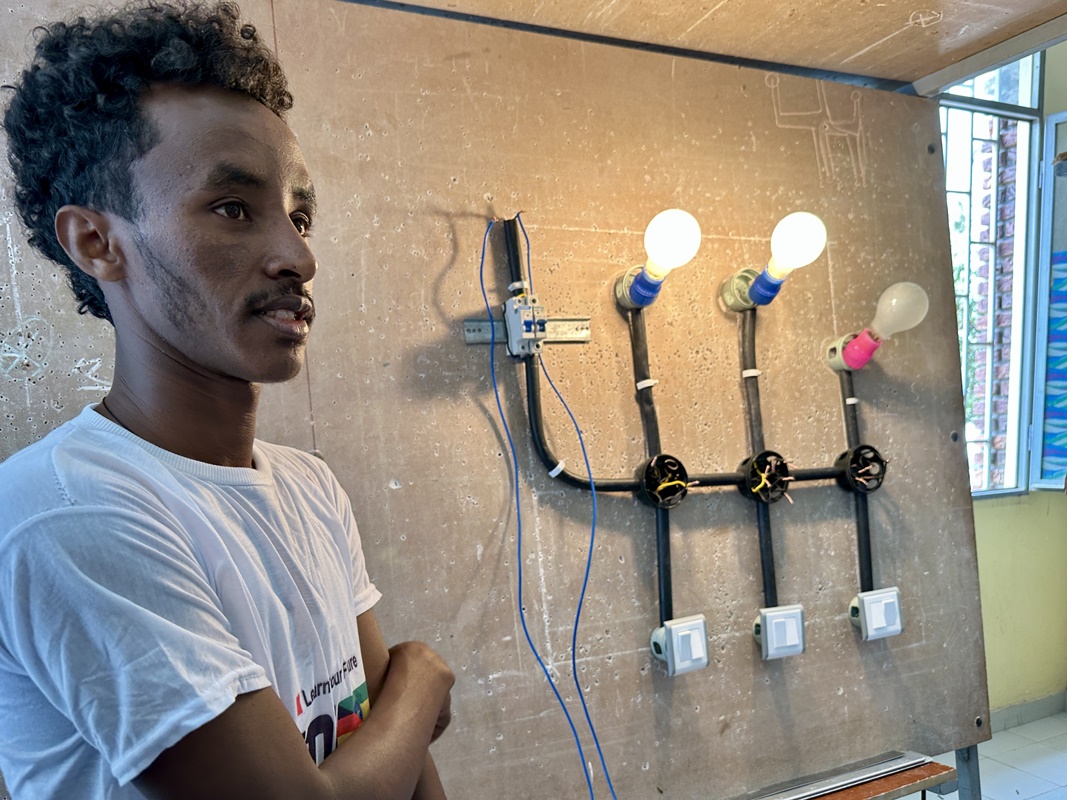The PartnerAfrika TVET project in Ethiopia ended in December 2023. The project was organised by the Bildungswerk der Bayerischen Wirtschaft (bbw) gGmbH in partnership with the local private education provider Don Bosco Salesianer in Ethiopia.
Don Bosco is characterised by its commitment and care, especially for poor, vulnerable and disadvantaged young people, based on the principle of preventive education.
Among others, Don Bosco runs two vocational training centres in Addis Ababa - Mekanissa TVET College and the Don Bosco Children TVET Institute - which also offer opportunities to young people who would not formally have access to vocational training. The successful concept of the Don Bosco schools is the teaching of soft and life skills (imparting values), combined with the high quality of training, which is why the graduates enjoy a very good reputation and are preferred on the labour market. In the last audit by the TVET Agency in Addis, both schools were the only schools in the district to achieve the best standard.
The 3-month training courses were offered in 7 sought-after vocational fields, including electrical and plumbing installation, tailoring and graphic design.
As of Oct. 2023, more than 850 students were qualified according to the national training standard NTQF, of which just over 250 were successfully and permanently placed in paid work. The BINA concept - profiling, training, integration into the labour market - has proven its worth here. The upstream vocational orientation (profiling) in particular ensured a low drop-out rate of 3.8% among the trainees.
The project objective of providing 1000 disadvantaged young people with improved access to vocational training and 300 to employment has not been fully achieved. Nevertheless, the impact of the project can be considered sustainable: the BINA approach and the model of short qualifications are being adopted and continued by Don Bosco, and even for those graduates who have not yet been placed, the chances of permanent employment and higher incomes have improved in any case. In the long term, this leads to an improvement in the employment and income situation of disadvantaged young people in particular.
The project is funded by the Federal Ministry for Economic Cooperation and Development as part of the special initiative "Decent Work for a Just Transition".






